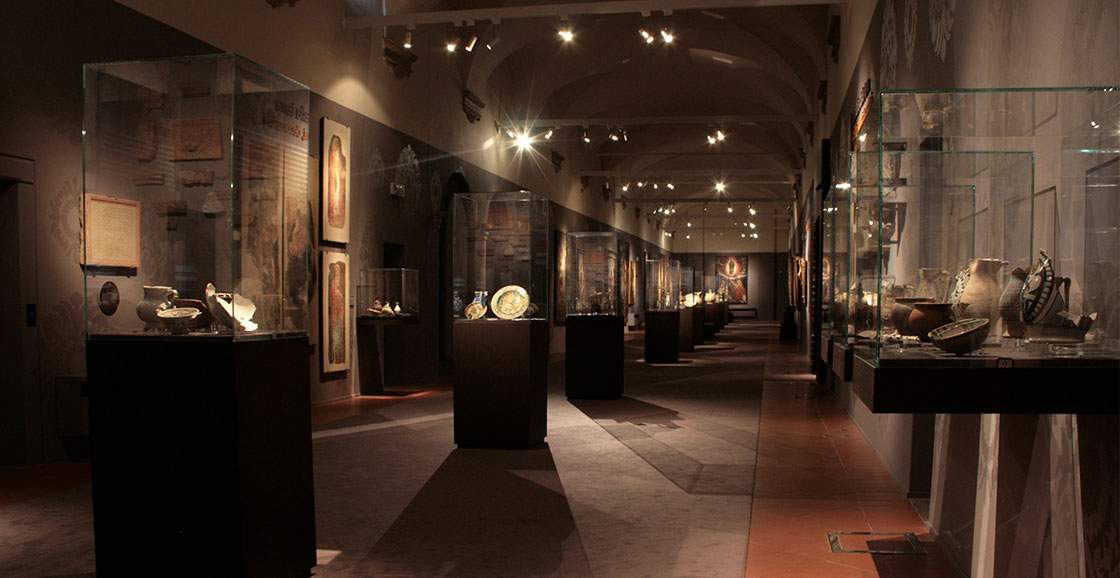In Imola, citizenship income recipients will have to make themselves available to help in the city’s museums and libraries. This was established by a council resolution published on Oct. 8, with which the municipality approved the collective utility projects (PUCs) envisaged by the Ministry of Labor decree of Oct. 22, 2019. The decree stipulates that income recipients are in fact required to offer their willingness to participate in projects useful to the community, to be carried out in the municipality of residence: for those who refuse, the citizenship income will be stopped.
PUCs envisaged by the decree include those in the cultural sphere and in the arts: support in the organization and management of demonstrations and events (preparation and distribution of information materials, support to the organizing secretariat, setting up of equipment, cleaning of rooms, collaboration in reporting), support in the opening of libraries, reading centers, video libraries (control of the rooms, rearrangement of library holdings and information materials, informational assistance to users of services, support in the opening with an increase in the hours and activities of custody and supervision), support in the organization of moments of aggregation and animation, cataloging and digitization of documents, support in the organization of exhibitions or in the management of museum facilities (e.g., active presence on opening days, with support, after training, to the staff of the institution or facility, cataloging of local artistic heritage, support in the construction of platforms for the networking of documentation related to artistic heritage, accompaniment in guided tours of monuments and museums).
PUCs are not assimilated to employed or quasi-subordinate or self-employed activities, and must be identified from the needs of the community. Citizenship income recipients, however, cannot replace salaried staff, nor can they fill roles or positions, or even be used to fill temporary staffing needs during busy periods. PUCs are also intended to be an opportunity for income recipients for personal inclusion and growth.
In the case of Imola, there are two projects to which income recipients will be assigned, and they are titled Welcoming Libraries and Museums Common Goods, both of which will begin on November 1, 2021 and end on October 31, 2022, and the recipients will be employed for at least three months, with a commitment, in the libraries, of three hours two or three times a week (thus, ranging from a minimum of six to a maximum of nine hours of weekly “work”), while in the museums of twelve hours per week, with greater concentration on weekends. All will be supported by mentors in the initial stages. With regard to libraries, income earners will be expected to carry out activities to support the reception of the public at library services, man the entrances to the libraries as necessary, and supervise that basic rules of order, decorum and coexistence are observed in the reading rooms, see to it that the measures taken to contain the spread of Covid 19 are respected, offer help in setting up spaces for initiatives with arrangement of movable furniture and in welcoming the public, carry out surveillance activities for exhibitions set up in the libraries, carry out minor repairs and arrangement of materials (books, games, etc.), stuffing brochures and invitations and distributing them around town.
The museums (the San Domenico Museum, Palazzo Tozzoni and the Rocca Sforzesca are involved), on the other hand, will see volunteers engaged in activities to support the visitor reception, surveillance and public orientation services, offering with their presence and availability a “human” garrison in the museum rooms capable of making people feel welcomed and assisted in every moment of their visit. They will also help to ensure that visitors’ behaviors comply with the rules of behavior within museums (including anti-Covid19 containment) as well as the integrity of the exhibits. They will then carry out activities to support public relations, take reservations and distribute information materials. The project will also serve, official city documents state, to consolidate “the image of museums as welcoming and citizen-oriented realities.”
As stipulated in the decree, there will be no fees for the activities, and recipients who have children under the age of 3 or who have people with severe disabilities in their families to care for will be exempt. Instead, all others will be required to make themselves available, under penalty of exclusion from citizenship income.
Imola, a room of the San Domenico Museums.
 |
| Imola, citizenship income recipients will help at museums and libraries |
Warning: the translation into English of the original Italian article was created using automatic tools. We undertake to review all articles, but we do not guarantee the total absence of inaccuracies in the translation due to the program. You can find the original by clicking on the ITA button. If you find any mistake,please contact us.